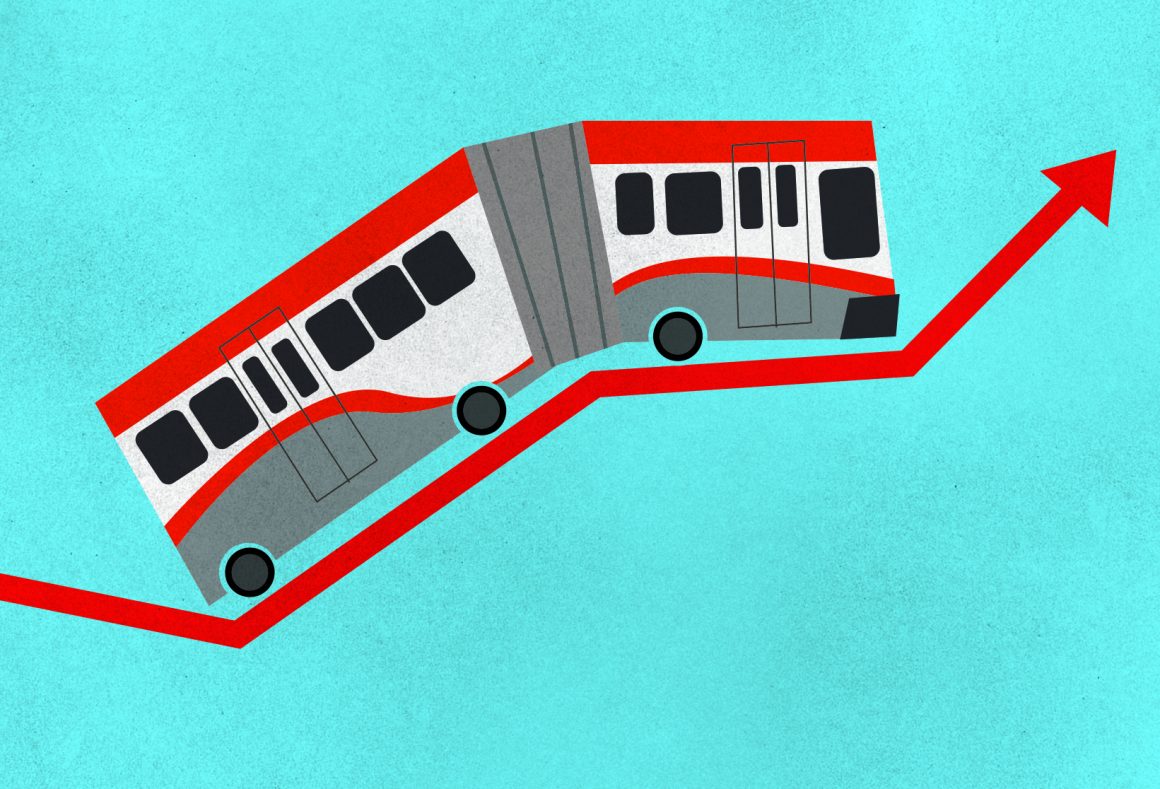
UPass actively detrimental to low-income students
July 18, 2017 —
When paying your fees for the upcoming semester, you may notice the UPass price has increased — again. This is the result of a contract between the University of Calgary and Calgary Transit, which will raise the cost of the UPass by $10.
The UPass will cost $140 a semester starting this fall. This works out to $35 a month, which is lower than the $101 standard monthly adult pass.
However, Calgary Transit recently introduced a sliding scale structure for low-income monthly passes. The lowest bracket lets individuals who make less than $12,474 a year ride transit for only $5.05 a month.
That means that for low-income students, getting around the city literally costs you more because you’re in school. And that doesn’t make any sense at all.
The UPass now disproportionately hinders low-income students. Those who fall into the lowest income bracket are forced to pay almost $120 more than if they were not students and bought monthly low-income passes. This is a significant amount for those who are already living on a tight student budget.
The UPass is a mandatory non-instructional fee for full-time post-secondary students in Calgary. Students do not have the option to opt-in or -out, regardless of whether they live in an area where transit is a viable option. This is because Calgary Transit can justify providing the UPass at a lower cost than what they’d normally charge for four regular-price monthly passes by having guaranteed revenue from all students.
For this reason, making the UPass optional isn’t feasible. Though it would be ideal for every student to decide whether to purchase the pass, the reality is that Calgary Transit wouldn’t be able to provide the pass at its current cost if it were optional.
But as it stands, full-time students will be forking over $140 next semester to purchase something they might not even use and that some could otherwise buy at a cheaper price. This is ridiculous and needs to be addressed.
Though it shouldn’t be the responsibility of the Students’ Union to fix this dilemma — they weren’t invited to be a part of the contract negotiations between the university and the city — an increased advocacy effort by our elected representatives should be expected.
In an interview with the Gauntlet, SU vice-president external Shubir Shaikh said that the SU is pushing for increased frequency and accessibility of transit services. These issues are important, but priority should also be given to eliminating the difference in cost between the UPass and the new sliding scale monthly fare.
A solution to this problem could be to put the UPass on a sliding scale equivalent to that of Calgary Transit. That way, students who qualify for the reduced fare would no longer have to pay more than if they were not students. This could be subsidized by the U of C, since they helped negotiate the deal that sees UPass prices rising until 2019.
After that, if it isn’t possible to make the UPass cost $20.20 a semester for students who make under $12,474 a year, the entire program should be abolished. Students should not be forced to pay for literally the exact same service they could receive at a lower cost.
Anything less is a failure by the administration to act in the interest of U of C students.
Derek Baker, Gauntlet Editorial Board
